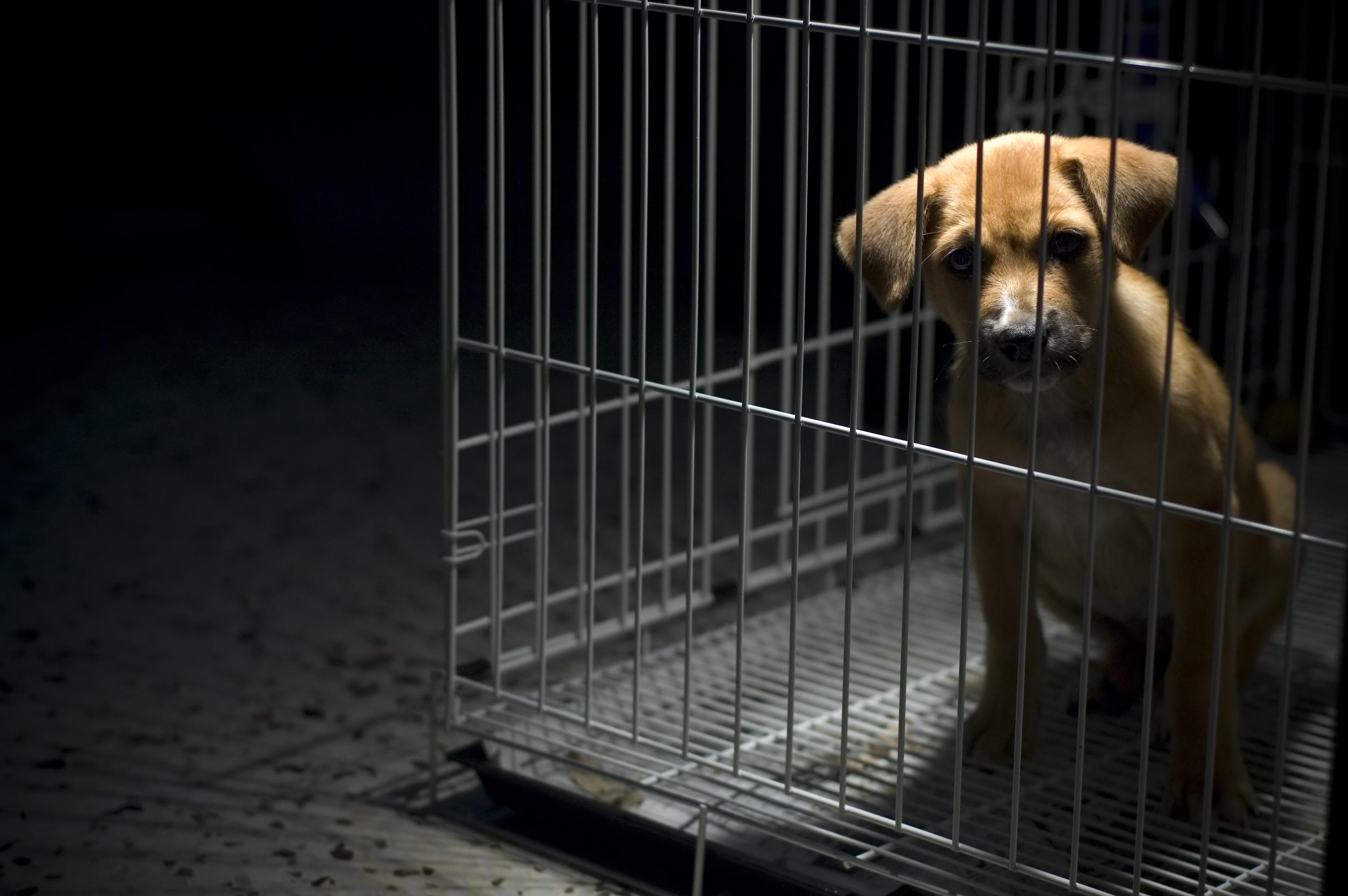The Psychology of Animal Cruelty


We all have the potential to be cruel. Some of us act on it more than others, but where this cruelty is directed can say a lot about an individual. The way in which a human treats their pets and other animals reflects something about their psychological well-being. Although a sad and frustrating indictment of society, animal abuse continues in various ways. Too often, we underestimate the amount of violence which is directed towards other species of animal.
Hitting, shouting or incurring any type of violence against an animal without feeling is a very worrying trait in a person. This is why AnimalWised investigates the psychology of animal cruelty. We will share the profile of such a person in order to identify it when we see it and hopefully go some way to preventing animal abuse in general.
Common traits of animal abusers
Before we look into the psychological profile of an animal abuser, we should find a suitable definition of animal cruelty. This is characterized as an act of cruelty, violence or abandonment towards an animal, whether it is a wild creature, street animal or pet.
Although the majority would openly condemn such actions, there are many types of abuse which continue to be perpetuated in societies across the world. One example is the torture of bulls in bullfighting or even neglectful breeders who cage animals inhumanely. Fortunately, there are drives to prevent such cruelty, but much of it still goes unreported.
What sort of person willfully abuses animals? What are they thinking when they carry out these actions?
The personality of an animal abuser
Many researchers have tried to carry out studies into the personality traits of an animal abuser. However, it is important to remember that cultural variables exist and the definition of animal abuse may differ according to particular societies. In general, however, the following characteristics have been found:
- Aggression: an aggressive person has a natural tendency to respond with violence to the stimuli in their environment. In this case, if a person is frustrated or angry they may take out said anger or frustration through physical violence toward an animal.
- Impulsiveness: acts of abuse or violence toward a person or animal are also related to a lack of control over their actions. Being impulsive means acting without due consideration or letting rage dictate behavior without thinking about the potential consequences.
- Low emotional intelligence: one of the most characteristic features of emotional intelligence is empathy. This is defined as the ability to identify and reflect the emotional states of others. If a person does not empathize with an animal while hurting them, they will be less likely to avoid harming in the future.
- Need for power: in many occasions, violence is used as a means to maintain a situation of power. When an animal (particularly a pet) does not obey, an abuser may exercise violence against them as a means to exert power.
- Selfishness: when a person only thinks of their own needs and only carries out actions which will benefit themselves, they may perpetrate acts of cruelty against animals with the mere objective of carrying out their own whims. For this same reason, animal abusers will often have string egoistic tendencies.
- Defiance: individuals who not only act against laws and social mores, but enjoy doing so, may develop abusive tendencies. This is because they consistently ignore or challenge the well-being of others around them.

Relation between animal cruelty and psychopathy
It is possible that the tendency to enact cruelty toward animals is closely linked to a mental illness. Such psychological pathologies seriously affect a person's ability to feel and reason. Some personality disorders may be likely to induce animal abuse as a symptom.
A psychopath is a person who exhibits difficulty in understanding the suffering of others. If an act of cruelty, towards animals or humans, can provide some sort of benefit to them (e.g. releasing frustration), they will be more likely to carry it out. They may not even hesitate. This is why many psychopaths will engage in animal abuse. However, not all animal abusers are necessarily psychopaths.
Although mental disorders can influence violent acts, animal is a phenomenon influenced by many factors. These may include social, emotional and environmental. For example, many families may teach hitting your pet as a viable way to teach them not to misbehave. If this is the case, the children will be more likely (though certainly not guaranteed) to perpetuate these behaviors as they grow. The important thing about this kind of cruel phenomenon is knowing how to identify it, both in the actions of others as well as ourselves. In this way, we have a better chance of pursuing and eliminating it.
Finally, we can point out that it is especially important to pay special attention to children who mistreat animals or their pets. While it may be considered a form of exploration or testing the limits of a specific animal's tolerance, it may also reveal a latent stage of abusive behavior. It may serve as preparation for physical violence perpetrated in the future.
It is important for a child who is found to abuse animals to see a psychologist. There are many factors which may be influencing this behavior. The child may themselves be suffering abuse, but whatever is the cause, helping to avoid aggressive behavior in the future means dealing with it as soon as possible.
What to do in a situation of animal abuse?
If we discover a situation involving animal abuse occurring in our environment, the first thing we should do is try to protect the animal from continued or escalated abuse. We can report the abuser to authorities or see if there is a safe way from separating the animal from the abuser. Once safe, an intervention should be initiated towards the abuser. This is a legal intervention which should be carried out by the correct authorities.
The type of action involved will be based on preventing abuse and controlling the urge to be violent and/or aggressive. There are two main ways to address abuse, but both can be combined for a more effective strategy:
- Punishment: either a fine or stay in prison, the relevant punishment will depend on the level and context of the abuse. Not all countries and regions have the same laws governing animals and their rights. It is important to know what action can be taken in your area.
- Psychological evaluation: once the punishment has been carried out, we should follow a process of re-education to avoid further attacks in the future. This strategy will likely be based on developing empathy and channeling anger.
Be considerate of the context of the abuse. If you see a violent person engaging in cruelty towards an animal, don't intervene if you think you may also incur violence against yourself. Call the relevant authorities and use caution if you do consider approaching.

Say NO to animal abuse
As we have inferred throughout this article, preventing animal abuse is everyone's responsibility. This means helping to spot when animals are being abused, but also educating those who may not be aware they are being abusive. There is a lot we can do by promoting proper animal care and speaking about related issues.
Publicly denouncing situations of abuse, avoiding participation in events or organizations which exploit animals and helping to properly treat our companion animals with dignity and respect.
If you want to read similar articles to The Psychology of Animal Cruelty, we recommend you visit our Facts about the animal kingdom category.








